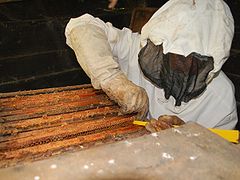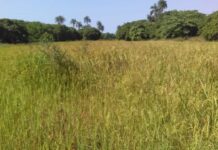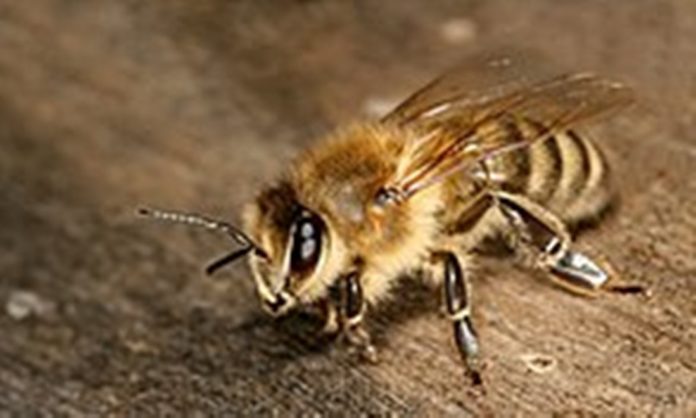By Madiba Singhateh
As we welcome you to another edition of the Environment Column, we will bring you remarks of the Director and Chairperson of the Gambia National Beekeepers Association (GNBA), who was visited by this columnist at the Brikama Nyambai office of the GNBA.
Musa Gibba, said the GNBA was formed around 1996, with the sole aim of bringing all those engaged in honey production under one umbrella. Gibba said most members of the association found their parents as beekeepers and honey producers; adding they have members all over the country and they teach and organize programs and sensitisations on bee keeping.
Chairperson Gibba said after training people, they support them with materials such as bee hives to start honey production in order for income generation and better living. Gibba said after training, most people discover that honey production is a challenge. He said Bee keepers complain of challenges in selling honey and honey products due to lack of market outlets. Gibba said this is one area of intervention of the GNBA; that they buy beekeepers’ honey which is stored and sold at the Association’s centre in Nyambai, and profit from sales has been used to build some of the buildings at the centre. Gibba said at present, they manage over 45 colonies of bee hives and have others owned and managed by individual members throughout the country.
Gibba however appeals to Government for assistance regarding space to develop more hives and to train more people. He said the issue of bee keeping in other countries is high in their country’s development agenda; that some countries have Schools where beekeepers are trained. He said as at now, they have students from the University and the Gambia College who are very much interested in beekeeping; but the area cannot accommodate them. Gibba said beekeeping as a business activity, can curb the issues of irregular migration and unemployment.
On the importance of bees, Gibba said their survival is very important for the world. He said bees assist greatly in the pollination of plants which helps in the continuation of the species; that without pollination, many plants will not produce, and most plant species will not survive. He however lamented the indiscriminate pillaging and destruction of our forest by woodcutters, for timber exploitation, adding if this activity goes unchecked, the lives of bees will be endangered in the nearest future, and this will be disastrous for the planet. Gibba called on the environment ministry to look into the use of herbicides and insecticides by some farmers, which affect bees. He said some farmers abuse the use of these harmful chemicals because they do not know its effects on the environment and how to use them.
 Gibba also urged the Ministry of the Environment, in particular the Forestry Department, to be mindful of forest fires and its sporadic occurrence nowadays. He said most of the country’s forest cover has been lost to forest or bush fires. He said this has caused the migration of the bee population of the country, to greener regions in the sub-region because most of their habitat has been destroyed by forest fires; adding the fires destroy the plants that bees survive on. Gibba said this is why they are against the cutting down of trees and the encroachment and pillaging of the forest. He said the forest is home to insects and animals as well.
Gibba also urged the Ministry of the Environment, in particular the Forestry Department, to be mindful of forest fires and its sporadic occurrence nowadays. He said most of the country’s forest cover has been lost to forest or bush fires. He said this has caused the migration of the bee population of the country, to greener regions in the sub-region because most of their habitat has been destroyed by forest fires; adding the fires destroy the plants that bees survive on. Gibba said this is why they are against the cutting down of trees and the encroachment and pillaging of the forest. He said the forest is home to insects and animals as well.
On the economic benefits of beekeeping, Gibba said honey production and the sale of honey products, is rising business for farmers in the country. He said they receive and sell honey from members at twenty five thousand dalasi in 12 liter containers. Gibba said Gambian honey is organic and pure and is sought after by even outsiders from as far as Europe.





















